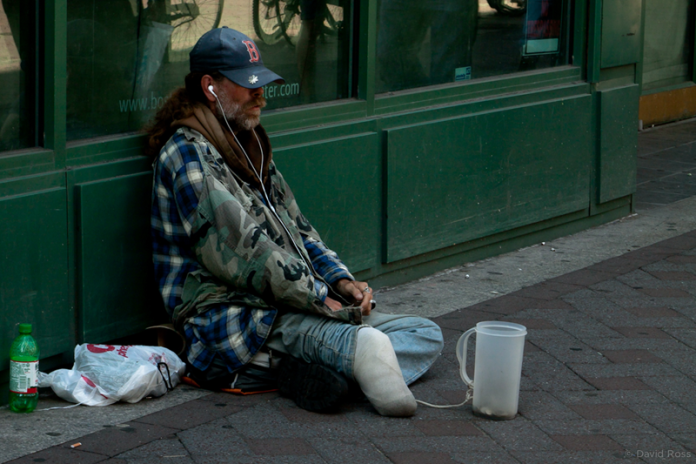As we honor the service and sacrifices of our veterans, it is crucial to address the growing challenge of veteran homelessness. Thousands of veterans, after serving their country, struggle with the transition back to civilian life, and some end up without a place to call home. Fortunately, innovative programs across the country are working to tackle this crisis, offering hope and providing pathways out of homelessness for veterans in need. Here, we highlight some of the most impactful initiatives that are making a difference.
Understanding the Issue of Veteran Homelessness
The journey to homelessness for many veterans is complex, often stemming from a mix of mental health challenges, post-traumatic stress disorder (PTSD), physical disabilities, and financial hardships. Veterans who lack family support networks or have limited access to healthcare can find the transition to civilian life particularly challenging. A study by the U.S. Department of Veterans Affairs (VA) reports that veterans are at an elevated risk of experiencing homelessness, particularly those with disabling conditions, substance use disorders, or difficulty finding employment. Addressing these root causes has been key to developing effective solutions.
The Housing First Approach
One of the most widely adopted strategies to combat veteran homelessness is the Housing First model, which prioritizes providing stable housing before addressing other challenges, such as employment or mental health issues. This approach has been transformative for many veterans. Unlike traditional methods that often require individuals to participate in rehabilitation programs before receiving housing, Housing First offers a stable, supportive environment as a foundation for recovery.
In cities like Houston and Salt Lake City, Housing First has been a key factor in significantly reducing veteran homelessness. The success of Housing First programs lies in their ability to offer a secure space from which veterans can address personal challenges and rebuild their lives. The VA has also embraced this model, partnering with organizations across the country to create more Housing First-based solutions, resulting in a 50% decline in veteran homelessness since 2010.
Tiny Homes and Affordable Housing Initiatives
As housing costs continue to rise in many cities, some communities are turning to tiny home villages as an affordable and efficient solution to help veterans rebuild their lives. Tiny homes offer an alternative to traditional shelters and transitional housing, providing veterans with privacy, stability, and a sense of ownership.
For example, the Veterans Community Project in Kansas City, Missouri, has constructed a tiny home village where veterans can live at no cost while they receive access to mental health services, career counseling, and other critical resources. Each home is fully furnished and equipped with the basics to create a comfortable environment. Residents receive individualized support, allowing them to focus on their personal growth and eventually transition to more permanent housing.
Similarly, Community Solutions, an organization focused on ending homelessness, has developed affordable housing solutions specifically targeted at veterans. They work in partnership with local governments and housing developers to secure funding and reduce barriers to entry, ensuring that affordable housing options are accessible for veterans in need. By creating communities specifically tailored for veterans, these initiatives help foster stability, trust, and community belonging.
Supportive Employment Programs
Employment remains one of the most significant hurdles for veterans re-entering civilian life. Many veterans have skills and training that are valuable, yet they may struggle to translate military experience into civilian job qualifications. Recognizing this, several organizations have created supportive employment programs that help veterans navigate the job market, receive training, and gain confidence in their civilian careers.
One such program, Hire Heroes USA, provides free job search assistance, resume workshops, and mock interviews for veterans and military spouses. By offering individualized job coaching, Hire Heroes has helped thousands of veterans secure stable employment, enabling them to achieve financial independence and secure housing.
Another example is the Homeless Veterans Reintegration Program (HVRP), a federally funded initiative aimed at helping homeless veterans gain the skills and training they need to find and retain jobs. The program provides a range of services, from occupational skills training to job placement assistance, giving veterans a solid foundation for their careers and a sustainable path out of homelessness.
Health and Mental Health Support Services
For many veterans, mental health challenges, such as PTSD, depression, or substance use disorders, play a major role in their journey to homelessness. The VA’s Health Care for Homeless Veterans (HCHV) program offers a range of healthcare services specifically tailored to meet the needs of veterans who are homeless or at risk of homelessness. This program includes crisis intervention, mental health counseling, substance abuse treatment, and support with housing placement.
In addition to the VA, nonprofit organizations like Volunteers of America offer mental health support specifically for homeless veterans. Through programs like these, veterans receive the therapeutic support they need, empowering them to regain stability and control over their lives.
Collaboration and Partnerships
No single organization can solve veteran homelessness alone. The most successful initiatives often come from partnerships between government agencies, nonprofits, local governments, and private organizations. These collaborations ensure that veterans receive holistic support covering housing, employment, health, and social services.
For example, Built for Zero, a national movement led by Community Solutions, collaborates with cities to create a coordinated, data-driven approach to reducing veteran homelessness. By using real-time data and sharing resources, communities involved in Built for Zero have achieved remarkable progress in reducing homelessness among veterans.
A Brighter Future for Our Veterans
While there is still much work to be done, these programs represent a step in the right direction. They offer hope and practical pathways for veterans to move beyond homelessness and regain independence. By addressing the root causes, creating stable housing, and fostering community support, these initiatives show that, with the right tools and resources, we can make a significant impact on the lives of veterans facing homelessness.
Ending veteran homelessness requires compassion, dedication, and a commitment to innovative solutions. As more organizations, individuals, and communities come together, we move closer to ensuring that every veteran has a safe place to call home—a goal worthy of those who served to protect us all.















